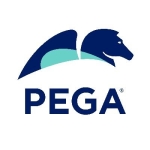Software development, right from start, was custom and tailor-made. The most changing parts of these software products are the interfaces to the internal and external worlds; interfaces to other third-party software products, databases, file types, technologies, application software external to the system being integrated with.
Integration concepts must have evolved from device drivers. Earlier computer systems and their software environments were privately owned by vendors like IBM, HPE, Dell, Digital, etc.These vendors used to, and now also, custom develop hardware products and computer operating systems. The applications development in those days was called proprietary development. The only common thing was the programming interface exposed to developers and computer operators called computer languages like COBOL, C, Pascal, FORTRAN, etc.
The computer systems evolved from large-sized minimal processing machines to, nowadays, compact laptops, cell phones, IoT devices and supercomputers. These computer systems had main systems and external devices called peripheral devices. These devices later became interoperable amongst the hardware and software vendors and were being produced by third-party vendors. This introduced the concept of a device driver to be able to plug and play the devices. These device drivers separate from the internal intricacies of the devices from the main machine's operating control, and handle tasks on their own.
The same concept is being used in software integration tools like MS BizTalk. Here, intricacies of the software systems - their internal operations, methodology developed by different different developers - used to be called spaghetti code. These complications of internal systems were to be isolated from the system being integrated to and were separated by integration software.
The integration software like MS BizTalk has adapters (as I mentioned earlier) for various external systems. These adapters are ready-made (encapsulated) functionality for a specific technology (File, FTP, MSMQ, web services, EDI), databases (MS SQL Server, Oracle, etc.), application platforms (SAP, PeopleSoft, Baan, healthcare adapters for HIPPA, HL7, etc.), or for integration with a system under development being integrated to these external systems.
What integration software achieves is, it isolates business logic (if-then-else, business rules, loops, exception handling, etc.) required to control the data, concurrently (multi-threaded), and does validation of data, special handling, and routing. In achieving this functionality, it isolates the external interfaces' handling logic in the adapters, main control of process flow in workflows (called BizTalk Integrations), and ports (ports are the locations where process control and data is to be delivered).
There are receive-only, send-only, and send-receive ports. These MS BizTalk Integrations can be subscribed by connecting the dots between systems, by connecting to ports, just like an electrician connects wires, a plumber connects connectors, a construction worker connects bridges to the roads, tunnels are connecting two end of mountains, or a railway worker joins the tracks for railroad.
I worked on an application integration project with MS BizTalk 2002 with the Pennsylvania Department of Corrections at Camp Hill , Pennsylvania, USA, using File and FTP adapters.
I worked with Cargus Systems at Lancaster, Pennsylvania, on BizTalk Integrations using Oracle 9i adapter and Grate Plains adapter (for MS Dynamics financial package).
I also worked on MS BizTalk 2004 with Med-immune Pharmaceuticals at Gaithersburg, Maryland, on their Sales Order Management System of Flu-mist Vaccines. The sales orders are entered in Siebel CRM where integrations receive that data using a Siebel adapter, transforms it and sends to various recipients like a SAP-based ERP system, for sales MRP-related operations and other manufacturing of vaccine-related operations, MS SQL database for further processing of sales order data, accounting and reporting. These MS BizTalk Integrations are also used with mainframe systems to pull archived data and generate required reporting.
I also worked as Lead Architect on a BizTalk 2009 integration project for Maharashtra State Electricity Boards web bill pay project (electronic electricity bill payment system.). This MVC-based web system integrated with MS SharePoint 2009, MS CRM Dynamics 2009.
Development is simple. I wish overall implementation and debugging were made simpler.
I have used it for three years.
Documentation and internet support is great.
Setup is straightforward and complex, depending on the configuration being used. More advanced level needs expert support.
An in-house team implemented it most of the time.
Pricing and licensing is reasonable.
MS BizTalk is reliable and dependable.
Integration software has made application integration a building block and simpler.
















